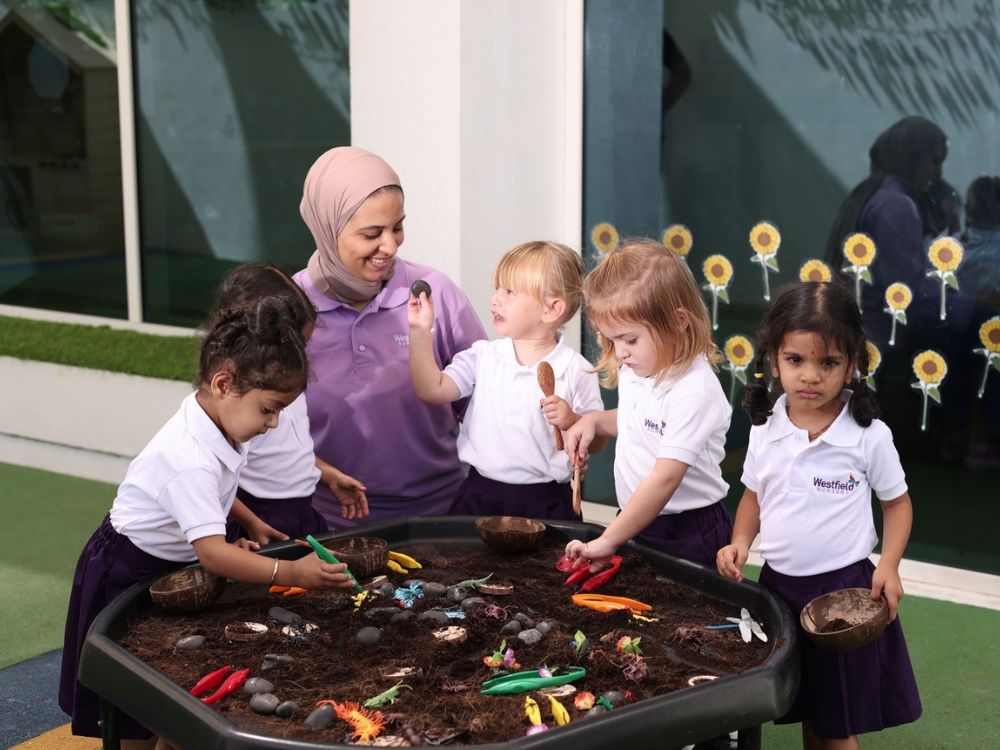As the world gathers for COPUAE28, Sustainability Education emerges as a core vital, highlighting its transformative potential in shaping a sustainable future. Education, far from being merely about imparting knowledge and skills, is about fostering critical thinking, nurturing values, and empowering individuals to become responsible global citizens. In the face of a rapidly changing climate and pressing environmental challenges, Sustainability Education holds the key to equipping the next generation with the knowledge, skills, and attitudes necessary to build a more sustainable and resilient world.
The Urgency of Sustainability Education
The world faces an unprecedented environmental crisis, characterized by climate change, biodiversity loss, and resource depletion. These interconnected challenges pose a significant threat to the planet’s ecosystems and the well-being of future generations. Addressing these challenges requires a fundamental shift in our relationship with the environment, one that is firmly anchored in sustainability principles.
 Sustainability education is the cornerstone of this transformative shift. It is about teaching individuals to adopt a holistic approach to the environment, to understand the interconnectedness of human actions and natural systems, and to make informed decisions that prioritize the long-term health of the planet. By seamlessly integrating sustainability education into curricula, we can empower learners to become active participants in shaping a sustainable future.
Sustainability education is the cornerstone of this transformative shift. It is about teaching individuals to adopt a holistic approach to the environment, to understand the interconnectedness of human actions and natural systems, and to make informed decisions that prioritize the long-term health of the planet. By seamlessly integrating sustainability education into curricula, we can empower learners to become active participants in shaping a sustainable future.
COPUAE28: A Catalyst for Collective Action
On December 1 and 2, 2023, 154 Heads of State and Government, along with 22 International Leaders, convened for the World Climate Action Summit (WCAS), marking a new era of climate action on the path to 2030. Amidst a world grappling with complex challenges, the WCAS presented an opportunity for the international community to rally behind a shared commitment to more extensive and immediate climate action, echoing the Paris Agreement’s first Global Stocktake. The potential is that it provides a critical opportunity for educators to reaffirm the role of education in addressing climate change and promoting sustainable development.
Seven Pillars of Sustainable Education
To effectively address climate change and promote sustainability, education must encompass a comprehensive approach that integrates multiple dimensions. Here are seven key pillars to consider:
Curricular Integration: Sustainability principles should be seamlessly embedded across various subjects, including science, mathematics, social studies, and language arts. This holistic approach will allow students to apply sustainability concepts to real-world scenarios and develop a broader understanding of environmental issues.
Active Learning Methodology: Engage students in active learning experiences that foster critical thinking, problem-solving, and collaboration. Encourage hands-on activities, project-based learning, and field trips to bridge the gap between classroom learning and real-world applications.
Empowered Educators: Equip educators with the necessary training, resources, and support to effectively teach sustainability concepts. Encourage professional development opportunities and cultivate a collaborative learning environment among teachers.
Community Collaboration: Engage parents, community members, and local organizations in sustainability initiatives. Foster partnerships that extend beyond the classroom and connect students to their communities.
Technology Integration: Utilize technology to enhance sustainability education. Leverage online resources, interactive simulations, and data visualization tools to bring environmental concepts to life and engage students in meaningful learning experiences.
Sustainability Literacy Development: Cultivate students’ sustainability literacy skills, enabling them to critically evaluate environmental information, assess the sustainability of products and services, and make informed decisions that prioritize environmental protection.
Leadership Nurturing: Foster student leadership in sustainability by encouraging participation in environmental clubs, organizing community outreach projects, and providing opportunities for students to take ownership of sustainability initiatives.
Conclusion: Education as the Foundation for a Sustainable Future
Education is the cornerstone of a sustainable future. By empowering individuals with knowledge, skills, and values, we can nurture a generation of changemakers who will drive the transition toward a more sustainable and equitable world. COPUAE28 serves as a stark reminder that education is not just a means to an end; it is the foundation upon which a sustainable future will be built. As we move forward, let us commit to integrating sustainability education into every aspect of our educational systems, ensuring that future generations inherit a planet that is healthy, resilient, and sustainable.
[ratemypost]





